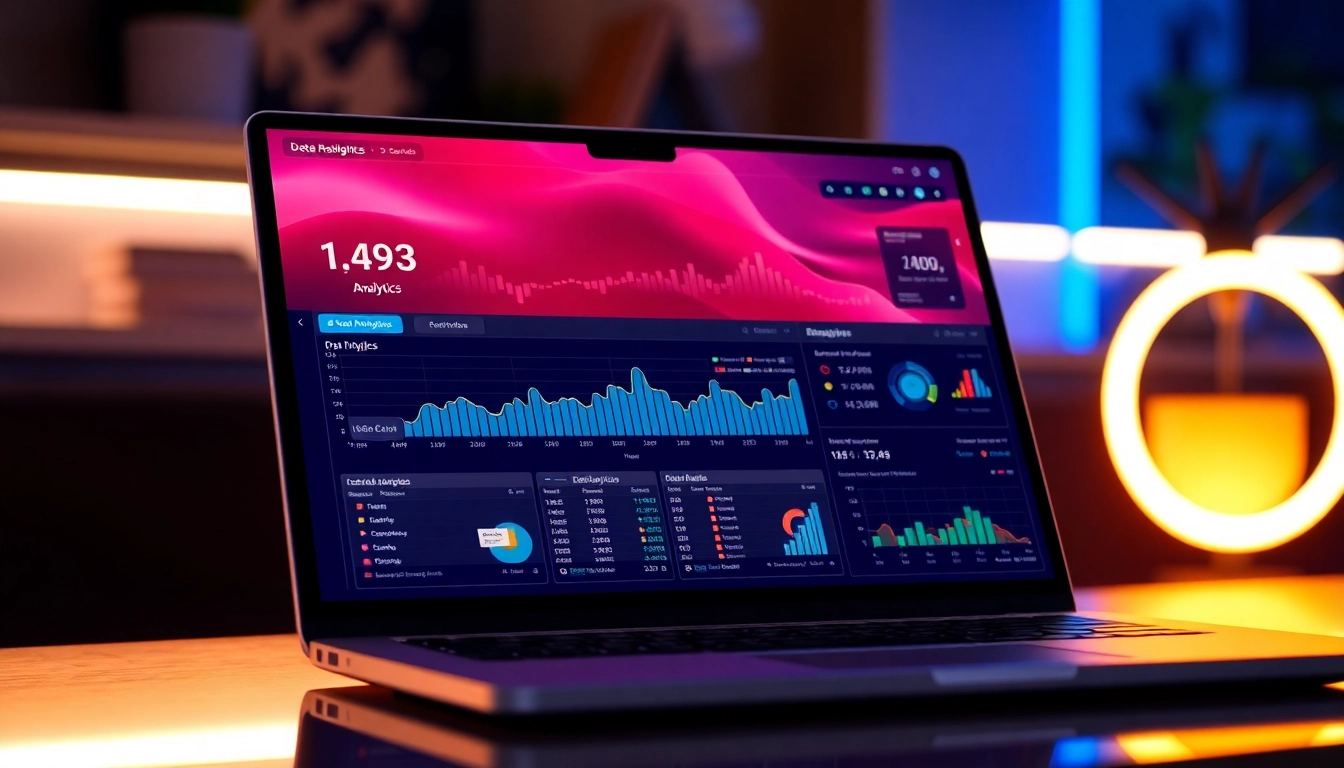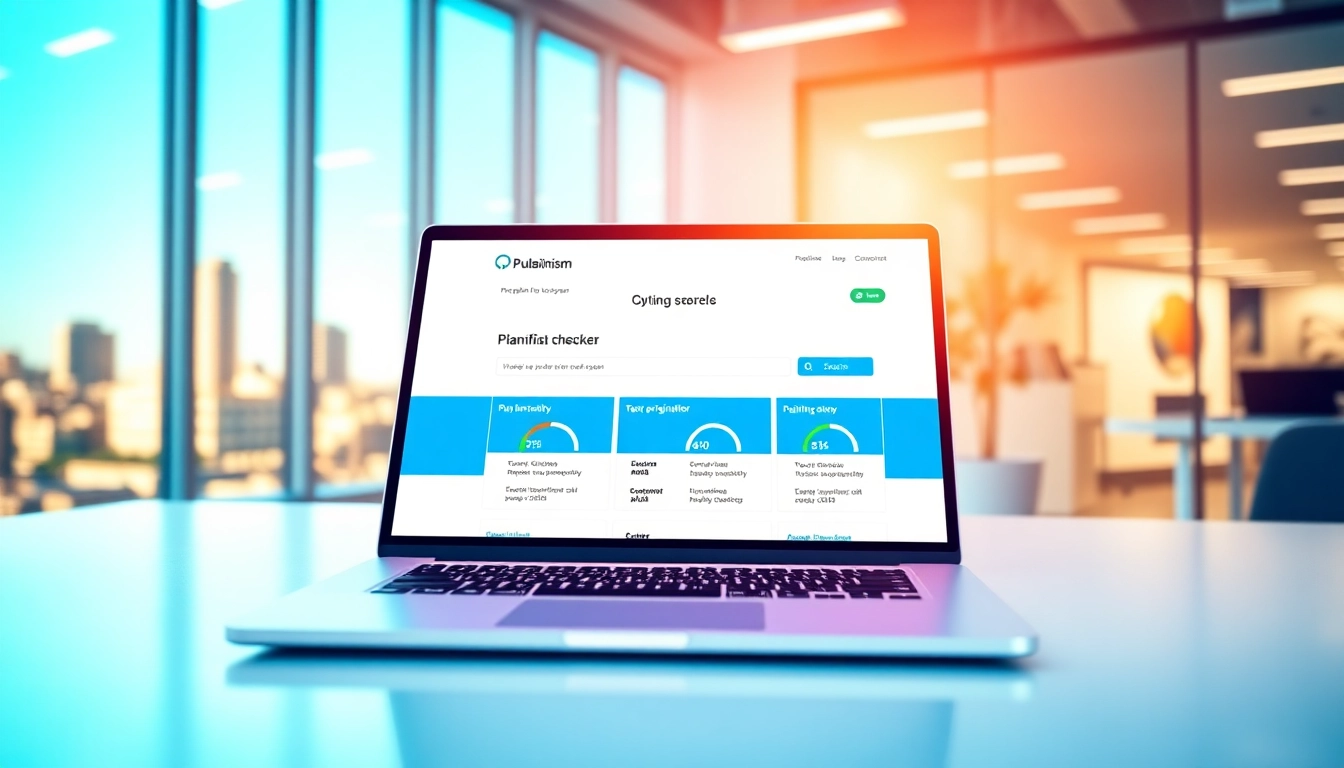Understanding Informatics: A Comprehensive Overview
What is Informatics?
Informatics is a multi-disciplinary field that bridges the gaps between computing, information science, and the practical application of technology in various domains. It involves the processing, management, and analysis of data to capture meaningful insights that can improve decision-making and efficiency. At its core, informatics aims to enhance how we acquire, interpret, and use information across different sectors, making it an essential discipline in the age of digital transformation.
The Role of Informatics in Modern Society
In today’s information-driven society, informatics plays a crucial role by enabling organizations and individuals to harness the vast amounts of data generated daily. From healthcare systems that utilize patient data to improve outcomes, to businesses leveraging analytics to optimize operations, the influence of informatics is profound. Moreover, government agencies employ informatics to streamline processes and enhance citizen engagement. The evolution of informatics is also supported by the proliferation of technologies such as artificial intelligence and machine learning, which allow for more sophisticated data analysis and predictive modeling.
Key Concepts in Informatics Explained
Understanding informatics requires familiarity with several key concepts:
- Data Management: Refers to the processes and systems used to collect, store, and analyze data effectively.
- Information Systems: These are structured systems designed to manage and distribute information aligned with the needs of users.
- Big Data: This concept encompasses large and complex datasets that traditional data processing applications cannot easily handle.
- Data Analytics: A systematic computational analysis of data, aimed at uncovering patterns and deriving valuable insights.
- Interoperability: This involves systems’ ability to exchange and use information effectively across different platforms and organizations.
Applications of Informatics across Industries
Informatics in Healthcare: Transforming Patient Care
Informatics in healthcare has revolutionized the care provided to patients by transforming vast amounts of clinical and operational data into actionable insights. Electronic Health Records (EHRs) are an excellent example, allowing healthcare providers to access patient information quickly, streamline communication, and make informed clinical decisions. Moreover, data analytics in healthcare can lead to improved patient outcomes through predictive modeling, which can anticipate patient needs and resource requirements.
One exemplary case is the use of informatics tools in managing chronic diseases. These tools help healthcare providers to monitor patient progress through data collected from various devices, facilitating early interventions and personalized care plans.
Business Analytics: Leveraging Data for Competitive Advantage
In the world of business, informatics plays a vital role in decision-making and strategy development. Businesses leverage data analytics to gain insights into consumer behavior, market trends, and operational efficiencies, thus providing a competitive advantage. The implementation of Business Intelligence (BI) systems has transformed how companies approach their analytics capabilities, turning raw data into structured information to support strategic initiatives.
A notable example is Amazon, which uses sophisticated analytics to enhance customer experience by personalizing recommendations and optimizing inventory management based on purchasing patterns.
Education and Informatics: Enhancing Learning Experiences
The education sector is increasingly utilizing informatics to improve learning outcomes through adaptive learning technologies and data-informed teaching practices. Learning Management Systems (LMS) collect data on student interactions and performance, enabling educators to tailor content and approaches to meet diverse learner needs. Moreover, data analytics can help institutions identify at-risk students and implement timely interventions to support their academic journey.
For instance, analytics dashboards within LMS platforms allow educators to track student engagement metrics, thus enabling proactive measures to enhance retention and overall learning efficacy.
Tools and Technologies in Informatics
Essential Software for Data Management
Effective data management is essential for successful informatics practices. Numerous software tools are available that facilitate data collection, storage, analysis, and visualization. Some of the essential tools include:
- SQL Databases: Structured Query Language databases are fundamental for relational data management.
- Data Visualization Tools: Software like Tableau and Power BI helps in transforming data into understandable visual formats.
- Statistical Analysis Tools: R and Python libraries are widely used for comprehensive data analytics.
- ETL Tools: Extract, Transform, Load tools streamline data integration from various sources into a unified system.
Emerging Technologies Shaping Informatics
Informatics is continuously evolving, influenced by emerging technologies. Key trends shaping the future of this field include:
- Artificial Intelligence: AI enhances data analysis capabilities, enabling predictive analytics and automation.
- Blockchain Technology: Ensures secure and transparent data exchange, particularly relevant in sectors like finance and healthcare.
- Internet of Things (IoT): Collects real-time data from connected devices, providing valuable insights across various industries.
- Cloud Computing: Facilitates scalable data storage and processing, promoting accessibility and collaboration.
Best Practices for Effective Data Utilization
To maximize the benefits of informatics, organizations should adopt the following best practices:
- Define Clear Objectives: Establish specific goals to guide data usage and analysis.
- Ensure Data Quality: Regularly validate and clean data to maintain accuracy and reliability.
- Foster a Data-Driven Culture: Encourage stakeholders to rely on data for decision-making processes.
- Implement Strong Security Measures: Protect sensitive data through encryption, access controls, and compliance with regulations.
- Continuously Monitor and Evaluate: Regularly assess the impact of informatics initiatives to adapt strategies accordingly.
Challenges in Informatics Implementation
Identifying Common Obstacles in the Field
Despite its significant benefits, implementing informatics systems often comes with challenges, including:
- Data Silos: Disparate systems can lead to isolated information that hinders comprehensive analysis.
- Lack of Skilled Personnel: The growing demand for adept informatics professionals often exceeds the available talent pool.
- Resistance to Change: Organizational inertia can impede the adoption of new technologies and practices.
- Data Privacy Concerns: Safeguarding sensitive information amidst increasing cybersecurity threats is a persistent challenge.
Strategies to Overcome Informatics Challenges
Organizations can adopt several strategies to address these challenges effectively:
- Encourage Collaboration: Foster communication between departments to break down data silos and promote data sharing.
- Invest in Training: Provide ongoing training programs to enhance employees’ skills and knowledge in informatics.
- Engage Leadership: Involve executive leadership to support and drive cultural shifts towards data utilization.
- Prioritize Data Governance: Establish clear policies and practices for managing data privacy and security.
Case Studies: Success Stories in Informatics
Exploring success stories can provide valuable insights into effective informatics implementation. For example, the implementation of an advanced EHR system at the Mayo Clinic led to significant improvements in patient care and operational efficiency. By utilizing real-time data analytics, the clinic was able to enhance diagnostic accuracy and improve treatment programs. Another case is funneled through Walmart, which employs data analytics to optimize inventory management, leading to substantial cost savings and better service delivery across its supply chain.
The Future of Informatics: Trends and Predictions
Data Privacy and Ethical Considerations
As informatics systems become more integrated into our lives, the importance of data privacy and ethical considerations grows. Organizations must navigate complex regulatory landscapes, such as the GDPR in Europe and HIPAA in the U.S., to ensure compliance while maintaining user trust. Striking a balance between innovation and ethical responsibility will be critical as informatics continues to evolve.
Future Technologies in Informatics
- Quantum Computing: This has the potential to revolutionize data processing capabilities, leading to unprecedented analytical performance.
- Augmented Reality and Virtual Reality: These technologies can transform the way data is visualized and interacted with, especially in fields like medicine and education.
- Smart Analytics: Combining AI with traditional analytics will lead to enhanced predictive capabilities, empowering users to make real-time, data-driven decisions.
How www.informaticsview.com Stays Ahead of Trends
As a premier platform for data-driven insights, www.informaticsview.com is designed to stay at the forefront of emerging trends in informatics. By continually updating its resources and analysis to reflect the latest technological advancements and industry shifts, the website ensures that users are equipped with the necessary tools and knowledge to navigate the complex landscape of informatics successfully. Through comprehensive articles, expert contributions, and case studies, www.informaticsview.com serves as a critical resource for professionals looking to leverage informatics for innovation and improved outcomes in their respective fields.



